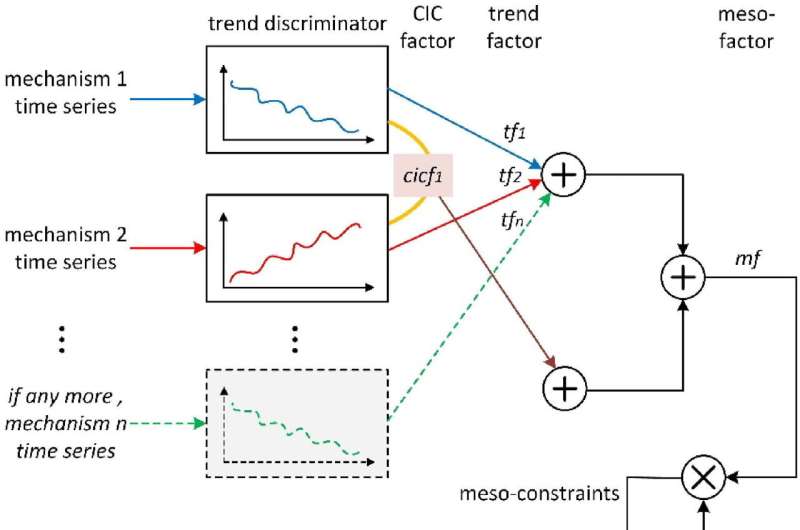
Deep learning modeling that incorporates physical knowledge is currently a hot topic, and a number of excellent techniques have emerged. The most well-known one is the physics-informed neural networks (PINNs).
PINN integrates the residuals of the system’s governing partial differential equations (PDEs) and the initial value/boundary conditions into the loss function, thus the resulting model satisfies the constraints of the physical laws represented by the PDEs. However, PINN cannot work if equations among the key physical quantities of the system have not been established. To model such systems, novel methods must be developed.
MGDL (mesoscience-guided deep learning), a deep learning modeling approach guided by mesoscience, was proposed by Li Guo and others from the Institute of Process Engineering (IPE), Chinese of Academy Sciences (CAS). The paper is published in the journal Engineering.
Mesoscience is a methodology for tackling multilevel complexities. It focuses on the study of mesoscale problems at different levels and correlates the macroscale behavior and intrinsic mechanisms of a system by means of the principle of compromise in competition (CIC) between dominant mechanisms.
When establishing sample dataset based on the same system evolution data, different from the operation of conventional deep learning method, MGDL introduces the treatment of the dominant mechanisms of complex system and interactions between them, according to the CIC principle of mesoscience.
Mesoscience constraints are then integrated into the loss function to guide the deep learning training.
Two methods are proposed to add mesoscience constraints—as a loss regularization term or the learning rate correction. The physical interpretability of the model-training process is improved by MGDL because guidance and constraints based on physical principles are provided.
MGDL was evaluated using a bubbling fluidized bed modeling case and compared with traditional techniques. With a much smaller training dataset, the results indicate that mesoscience-constraint-based model training has distinct advantages in terms of convergence stability and prediction accuracy, and it can be widely applied to various neural network configurations.
MGDL, proposed by researchers from IPE, CAS, is a novel strategy and method for utilizing the physical background information during deep learning model training. With the increasingly profound study and widespread application of mesoscience, MGDL is expected to be extensively applied to the modeling of complex systems.
More information:
Li Guo et al, A Case Study Applying Mesoscience to Deep Learning, Engineering (2024). DOI: 10.1016/j.eng.2024.01.007
Provided by
Engineering
Citation:
A novel deep learning modeling approach guided by mesoscience (2024, February 23)
retrieved 23 February 2024
from https://techxplore.com/news/2024-02-deep-approach-mesoscience.html
This document is subject to copyright. Apart from any fair dealing for the purpose of private study or research, no
part may be reproduced without the written permission. The content is provided for information purposes only.









